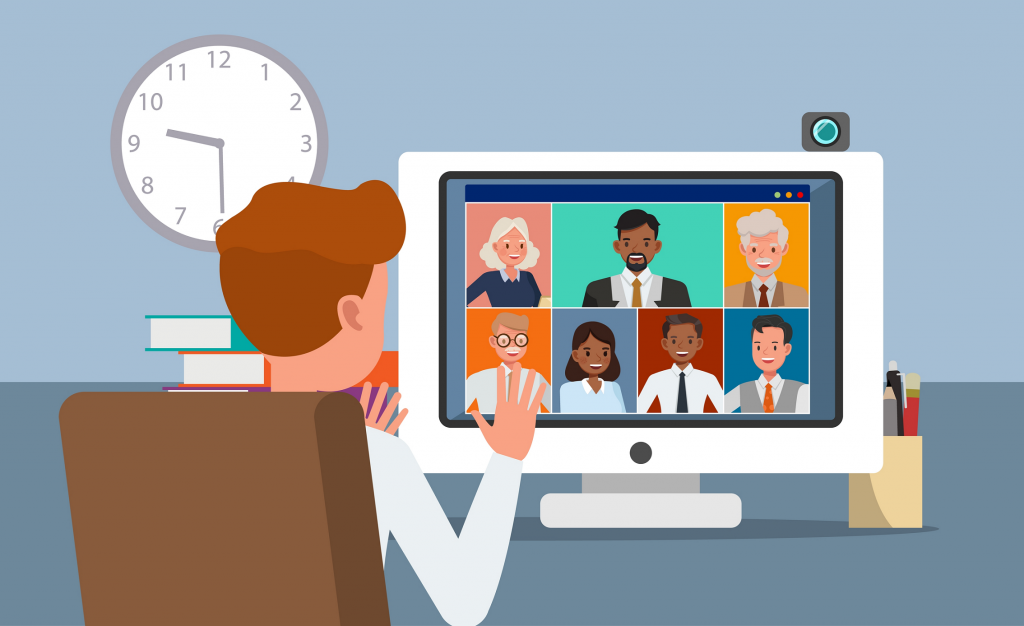When the Covid-19 pandemic put us fully online, colleagues in King’s Academy needed to expand our repertoire with a range of evolving technologies. Since we lead educational development programmes and sessions, we strive to demonstrate intrepid, successful designs which make best use of our learning environments. In the foreseeable future those environments would be digital. This post gives a rationale for carving out regular time to test things out together, followed by details about how we set this up to be low-maintenance.
There’s overlap amongst our digital technologies, and consequently a degree of choice which can be as bewildering as it is positive. One example is the array of assessment types with subtle but important differences you only really grasp by practising. In contrast, it is unclear how some technologies – particularly those born in enterprise rather than education – can be bent to educational purposes. We often have questions around workflows, views, permissions and collaborative authoring.

You may be wondering, why not simply switch to a non-editing role to check something. With materials (files, pages, videos etc) it’s easy to switch role and check those from a student point of view – but our main challenge is activities, especially group activities. The importance of community and belonging to student success was already established before Covid-19. Research in 2020 has underlined the value students ascribe to interactions within the curriculum – yet these are the most challenging to test and practice because at a time when everyone is under so much pressure it feels awkward to ask colleagues to divert their time into helping us.
In the end this concerns empathy and considerate design. Gaining a perspective of students and colleagues in groups is crucial to anticipating and guiding their interactions with each other and any artefacts they produce together. It informs decisions about the scaffolds (practical instructions, conceptual and strategic guidance) needed, where, how, and when. We were seeking practice opportunities to build our own confidence and enable us to facilitate the activity smoothly for students, who emphasise in surveys that good organisation is more important to them than ever.
So we decided to set something up for our unit – working title ‘Tech Test Thursdays’ – in which we would practise real scenarios while adopting different perspectives. Weekly (more recently, fortnightly) anyone from our team who is free at that time meets to test out an activity which one of us has requested, which are otherwise impossible to test alone. Examples include:
- The KEATS (Moodle) Workshop peer assessment activity, including how to set up ungraded feedback-only assignments, how different elements display for students, and how the activity progresses through its stages.
- Breakout groups in Microsoft Teams Meetings, including allocations, how best to make group artefacts visible to GTAs who cannot enter the groups, how to share files and guidance.
- Microsoft Bookings to manage appointment slots, including how students are notified and access the meeting.
- The PollEverywhere plugin for Microsoft Teams Meetings, including how responses display to different roles, who can access results and where the poll ends up afterwards.
We discuss questions like “Is it intuitive?”, “Is it convenient?”, “Can every student participate?”, “Does the technology or process support or divert from learning?”.

We set Tech Test Thursdays up to be low maintenance, as follows:
- In our calendars there’s a recurring web meeting.
- In the meeting description there’s a link to a document which all team members can edit.
- The document contains simple placeholders for available dates.
- Anyone who wants to test something reserves a date by writing a quick description of what we will be testing out that week, including anything we need to do in advance such as download or update some software and, if needed, a simple protocol setting out what to do and when.
- On the day we arrive at the online meeting and the colleague who proposed that week’s test directs us. We report back about the experience, affirming, querying or raising difficulties, hunting for answers on the web. We test on the different devices we have to hand, replicating the diversity of students’ devices. We try again iteratively, with refinements, and we may discuss possibilities for alternative technologies. There’s usually a bit of swearing.
- By the end of the meeting the colleague has insights into whether their plans are likely to work, or whether they need a workaround or to go back to the drawing board. The rest of us also now know these things, and have refreshed our awareness of how it feels to be a student, learner or participant in an online environment.
The benefits of Tech Test Thursdays are several. They have allowed us to avoid an ad-hoc approach and dedicate time to demonstrate useful technologies and practices to each other, identifying gaps and efficiencies. We learn vicariously from each other and gain confidence in our digital capabilities as a result. We become sensitised to different perspectives and better at setting things up considerately and accessibly. And we get to meet in an informal setting to pursue our curiosity, which is refreshing and good for morale. Some comments from colleagues:
Chenée Psaros (Learning Developer):
“Being involved in Tech Test Thursday help me plan for my teaching better. I was able to test things I wasn’t sure would work before using them in class. ... The TTT sessions I most benefitted from were the ones where I was doing the testing, I found the one on sharing different documents in breakout rooms particularly useful. However, participating as a ‘student’ was also helpful because I was able to see the different things colleagues were doing in their classrooms.”
Mary Seabrook (GTA development lead):
“The main benefit for me has been seeing that everyone else struggles with the same sort of things. On a practical level it’s been good to test out a couple of things with colleagues … but get added value from other ideas/feedback that comes up when people are trying things.”
Written by Mira Vogel
Dr Mira Vogel is a Senior Teaching Fellow in King’s Academy (the educational development team at King’s). She has a longstanding interest in digital technologies in education, particularly for collaborative and multimodal authoring, and is a supporter of open source software and open educational practices.
